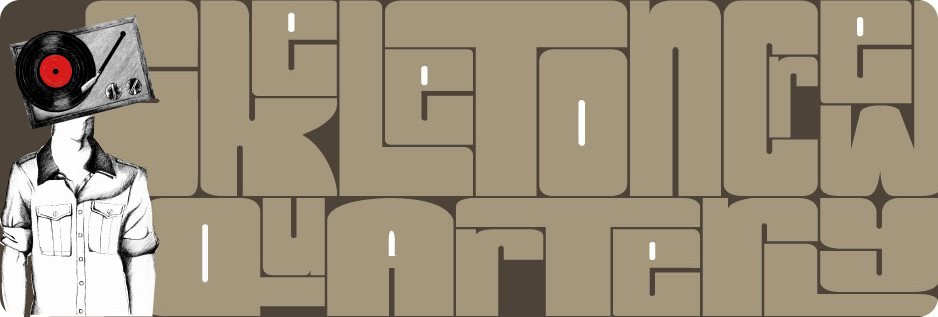
Glider
The Sight Below
Ghostly International.
SCQ Rating: 88%
Over the past two years I’ve taught myself to thoroughly screen any potential electronica purchases. For one, tons of artists – be it drone, ambient, laptop beats, whatever – sound virtually interchangeable but the greater risk is that you could spend your entire life hunting down new electronic music and never, ever find that disc you were destined to hear. As such with any issues of quality control, I’ve become a first-listen critic - haphazardly selecting a few cuts off a given disc before rendering silent opinion – and because this scene has so many homogenized niches, my search for greatness can become pretty depressing. You begin to question whether your parameters for greatness were actually flukes borne from a specific time period or emotional peak. You find yourself disappointed in records because they fail to conform to your blind assumptions about their name or aesthetic. Things stop making sense.
An album like Glider brings everything back into clear focus and has reminded me of my passion for this scene. While its tone and vibe are fairly commonplace – emotive ambience, four/four beats, cinematic synth-sweeps – how it’s constructed and performed is gorgeously unique. The Sight Below (who prefers to keep his birth-name private) uses each of Glider’s nine tracks to explore the capabilities of combining steadfast four/four rhythms, compressed guitar and keys… and while the results should, by all means, sound monotonous, they instead combine to form a faultless tapestry of emotional cliffs and valleys. ‘At First Touch’ establishes the setting with ominous, reverberating keys swelling coolly over a persistent beat. Beneath its steady thump is the first hint of Glider’s depth; a second rhythm, occasionally detectable and drifting up from beneath the mix. Throughout the flexing bass-line of ‘Dour’, the flooding moods of ‘Life’s Fading Light’ or ‘A Fractured Smile’s ecstatic pulse, Glider sounds like a heartbreaking ambient record somehow complimented by the dance party your neighbour is throwing downstairs. While the compositions are remarkable without context, I’m blown away to discover that Glider was recorded live off the floor as The Sight Below builds each layer before our ears and then adds his minimal, nostalgic guitar. His graceful spontaneity provides these tracks with the heartbeat necessary to ward off any needless repetition, while his focus prevents the excesses that most live recordings cater to.
Alternating between still-life soundtracks and dancefloor euphoria, this is the record you want to hear next to frozen beaches, empty parks or in the still of night overlooking your city’s horizon. I keep telling myself an album of such singular sound shouldn’t be this exhilarating yet its strength is in the details. No two tracks share the same melancholy’s feel or metronomic beat’s structure as each bends its mood and tempo expertly. Like its topographic cover implies, Glider is an airborne transport that’ll move you over earth and water, giving you an aural weightlessness and breathless view from above all things.













